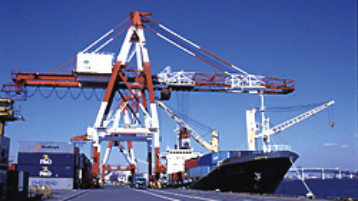In the first two months of the year, a total of 277,045TEU were traded between South Korea and Japan in January-February, decreasing 9.3% year on year from 305,550TEU, according to the Korea Nearsea Freight Conference (KNFC).
In January, container movement between the economies declined a notable 10.6% to 139,974TEU, as the Lunar New Year holidays in South Korea and the New Year holidays in Japan both fell on the month in question. In February, the novel Covid-19 infection spread unexpectedly, leading to an abatement of 8% in throughput to 137,071TEU. Transhipment containers were also impacted adversely.
Exports from South Korea plunged 11.2% to 54,798TEU, while its imports also suffered a double-digit contraction, plummeting 13% to 45,176TEU. Transhipment containers fell by 7.7% to 177,071 TEU.
The catastrophic pandemic follows a slightly decreased year for the Port of Tokyo, which handled 4,513,641TEU of oceangoing containers in 2019, which represents a 1.2% decrease from the previous year. Exports accounted for 2,128,983TEU, up 0.5%, and imports accounted for 2,384,658TEU, down 2.8%.
Loaded containers amounted to 3,310,653TEU, down 3%, consisting of 934,522TEU of exports and 2,376,131TEU. Meanwhile, empties (exports and imports) totaled 1,202,988TEU, which represents an increase of 4%.
Overall cargo throughput fell by 4.1% to 87.8 million tonnes, while international shipments weighed 48.49 million tonnes, down 2.7%, comprising 12.73 million tonnes of exports and 35.76 million tonnes of imports.







